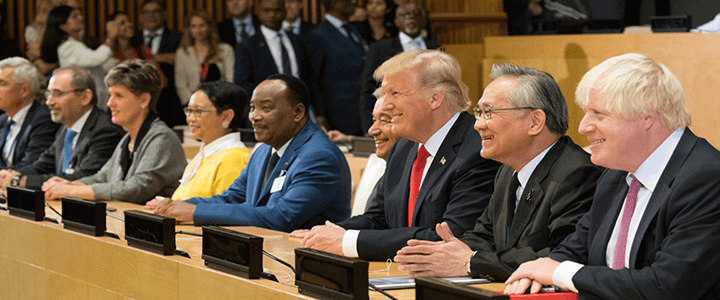We get lots of questions at ClearanceJobs regarding President Trump and security clearances. Many people believe — rightly or wrongly — that were Trump just another government employee, he wouldn’t be able to get a security clearance. They cite his complex finances, his marital infidelity, his apparent fondness for Russia, and a litany of other offenses, confirmed and alleged.
How, they wonder, could someone who would otherwise be considered to be untrustworthy be placed in a position where he has access to every single secret the country has?
The short answer, which has been discussed on ClearanceJobs before, is that’s just not the way it works in the United States. But it is the way it works in other countries… countries that you’d rather not have us become more like.
Who does and doesn’t need a clearance?
There are 546 people in the country at any given moment who do not require a security clearance to access classified information: The president, the vice president, the 435 members of the House of Representatives, the 100 senators, and the nine supreme court justices. As “constitutional officers,” the Constitution lays out the qualifications for each of these offices. No law or executive order can add additional restrictions. Their election to office is all the clearance they need.
For everyone but the president, the exemption from the need for investigation and adjudication does not exempt them from the “need to know” requirement, nor does it exempt their staffers from gaining and maintaining a clearance.
While there are laws regarding what happens when someone with a clearance reveals classified information, there are no laws that define what classified information is. The president, as the head of the executive branch of government, is the ultimate (but not only) arbiter of what is classified and at what level. By definition, the president cannot leak classified information, since he has the authority to declassify anything he wants.
Guess who requires a security clearance to run for president?
Iran, that’s who.
On Sunday, Radio Farda, the Persian-language service of Radio Free Europe/Radio Liberty, reported a new development from Tehran. The country’s “Guardian Council,” the 12-member body that interprets the country’s constitution and oversees its elections, has imposed several new qualifications for running for president. Among them is the requirement to obtain a security clearance that “ensures potential candidates are not ‘seditionists,’ a label regime insiders use to describe those who played an active role in the protests that followed the disputed presidential election in 2009.”
Potential candidates must also name their advisers before they can qualify for the ballot.
I’m not sure what else to say. The fact that any natural born citizen age 35 or older who has lived in the U.S. for 14 years can run for president is one of the most fundamental principles of our open society. Different states have different requirements for gaining access to the ballot, but those are merely reasonable restrictions to ensure that only candidates who can show at least a modicum of support gain access. No one really wants to read down a list of hundreds of names to find the candidate for whom they want to vote.
Giving the government the ability to decide who can and who cannot run for office is just not who we are as a country. Never mind the practical implications: the president has the power to grant or deny a clearance to anyone he wants.
Do we really want him (or someday, her) to be able to prevent anyone he dislikes from running?




